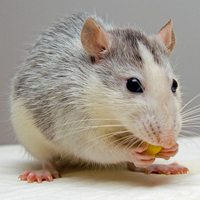 Smart Citations
Smart CitationsSee how this article has been cited at scite.ai
scite shows how a scientific paper has been cited by providing the context of the citation, a classification describing whether it supports, mentions, or contrasts the cited claim, and a label indicating in which section the citation was made.
Anti-inflammatory activity of a natural herbal-marine drug (MS14 - SANT and SUSP) compared to sodium salicylate or methylprednisolone in a rat model for multiple sclerosis
A natural compound of marine herbal origin has been used in Persian Traditional Medicine to relieve some symptoms of multiple sclerosis. The present study investigated the anti-inflammatory effects of a patented extracts of the traditional receipt (MS14). In this preliminary experiment, we used seven groups of six rats: the control group received vehicle, the two positive control groups were treated with either sodium salicylate (300 mg/kg) intraperitoneal (i.p.) or methyl prednisolon (MPN 10 mg/kg) i.p., while the test groups were treated with a solution centrifuged MS14 (SANT 100 mg/kg) and suspension of MS14 (SUSP 100, 150, 300 mg/kg) i.p. After thirty minutes, paw volume was measured by plethysmometer and immediately formalin solution was injected subcutaneously into the hind paw and after an hour, inflamed paw volume was measured. In days 2-8, the inflamed paw volume was measured and immediately drugs were injected i.p. The anti-inflammatory effect of MPN was significant only on days 5 and 6. The anti-inflammatory effect of SS was significant only on the 6th day, while the anti-inflammatory effect of SANT MS14 (100 mg/kg) was also significant only on the 6th day. SUSP MS14 (150 mg/kg) significantly reduced edema from second to 6th day. Intra-peritoneal injection of SUSP MS14 with 300 mg/kg was toxic, so excluded from the study. This research indicates that the MS14 possesses an anti-inflammatory effect after intra-peritoneal administration. Comparative anti-inflammatory effects of MS14 with Glucocorticoids in this study, may justify a possible mechanism for its action in multiple sclerosis, if further studies will provid strong statistically confirmatory effects in animals and safety human trials.
How to Cite
PAGEPress has chosen to apply the Creative Commons Attribution NonCommercial 4.0 International License (CC BY-NC 4.0) to all manuscripts to be published.

 https://doi.org/10.4081/ejtm.2022.10169
https://doi.org/10.4081/ejtm.2022.10169




